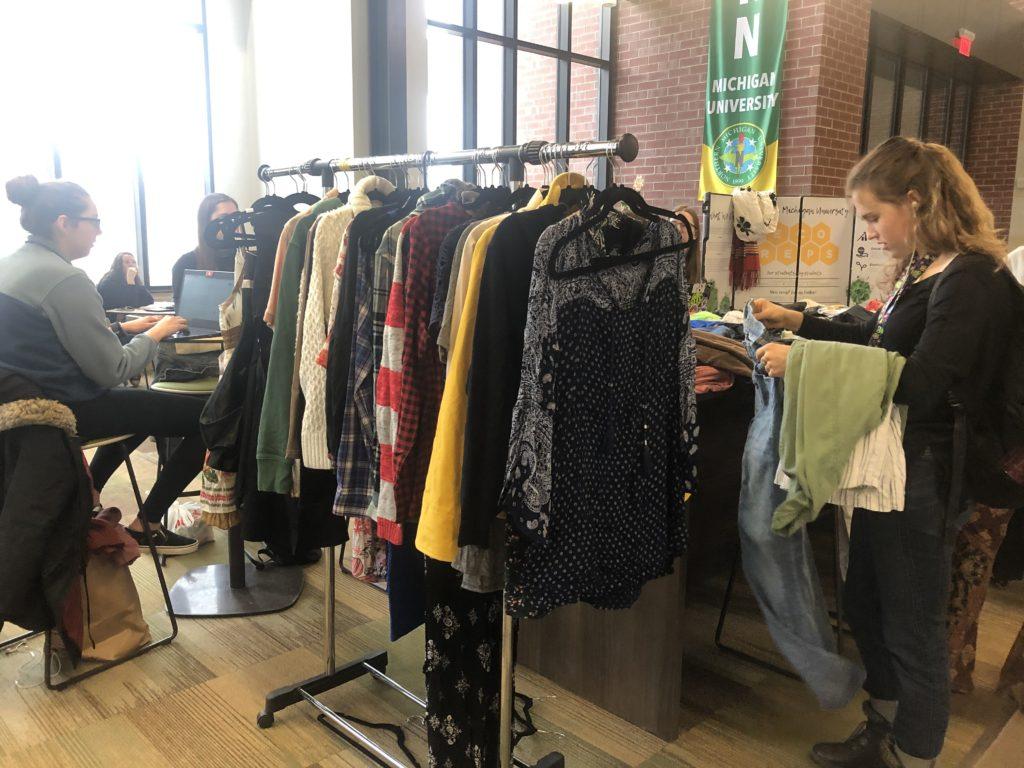For many NMU students, an awareness of the natural world and appreciation for the environment was a factor in deciding where to study during college. In fact, for some, sustainable actions are a priority. At the very least, most students at NMU, where we are surrounded by abundant natural resources and Lake Superior, want to be able to enjoy these beautiful locations for a long time to come. In sum, NMU students care a whole lot about our planet.
For the most part, students are aware of what can be done for sustainability, and many of us may even be motivated to make some decisions based on environmental concern. Many people in our age range value this sort of awareness, and consider that in this climate it is incredibly important to live sustainably. Many of us have grown up with a feeling of responsibility towards our planet. We’ve heard the mantra “reduce, reuse, recycle,” and we try. We know if we don’t, our grandkids will pay for it.
However, actually applying the concepts of sustainability to our daily lives has always been a bit harder than merely talking or thinking about it. Even if one is aware of the basic measures which can be taken to reduce one’s negative impacts, such as eating more local produce, recycling, saving water and electricity, etc, sometimes it’s easy to see these things as inconveniences or become disillusioned with their small influence.
Some ways we like to make sustainable choices is by cutting down on our consumption of meat (even doing one or two meals a week without meat could help), and using a car with good gas mileage (rather than an average clunker truck that leaves clouds of smoke with each press of the accelerator). We may also try reducing personal food waste. We might try cooking homemade meals because it cuts down on plastic and cardboard and can also be a healthier option.
But 2020 has a way of disrupting all things. Even simple actions promoting sustainability have become more difficult for NMU students during the COVID-19 pandemic. It can be particularly difficult to find a balance between sustainability and safety now. Dorm life especially isn’t the most applicable living situation for sustainability at the moment.
Food waste reduction, for example, has been made harder by COVID-19 because most of the food on-campus students are getting is heavily packaged and the dining hall, which used to pride itself in its efforts to be eco-friendly, now has to use thousands of boxes for meals a day (which can’t be recycled if they have food on them). COVID-19 has also led to more masks and gloves being used and thrown away than normal.
That’s not to say there is nothing encouraging which has come from the impacts of the pandemic. In fact, it’s interesting that during the beginning of the pandemic atmospheric conditions improved. That’s because people were just doing essential things to get by. They weren’t driving all over for no reason, they were eating less wasteful items, and factory production slowed down. Maybe we can learn something from the time in which we were quarantined, and rearrange priorities somewhat in the future
Conserving nature must always be a priority in our lives, and even through difficult times we need to stay on top of it and make sure that NMU and Marquette remain the beautiful place that it is.
Editor’s Note: The North Wind is committed to offering a free and open public forum of ideas, publishing a wide range of viewpoints to accurately represent the NMU student body. This is an editorial, written by the North Wind Editorial Board in its entirety. It reflects the majority views of the individuals who make up the editorial staff of the North Wind. It is the policy of the Editorial Board not to endorse candidates for any political office, in order to avoid aligning this public forum with particular political organizations.

























